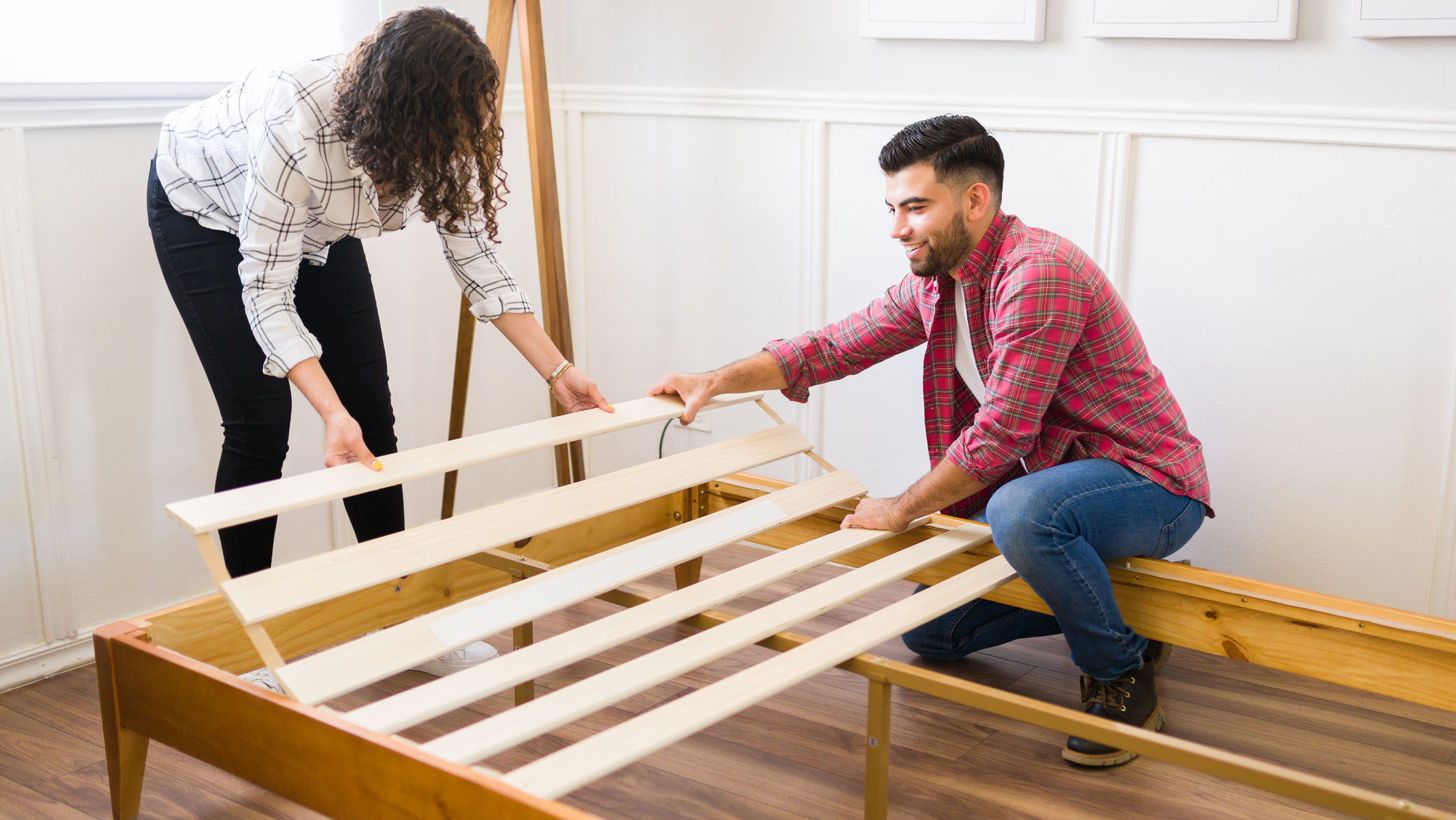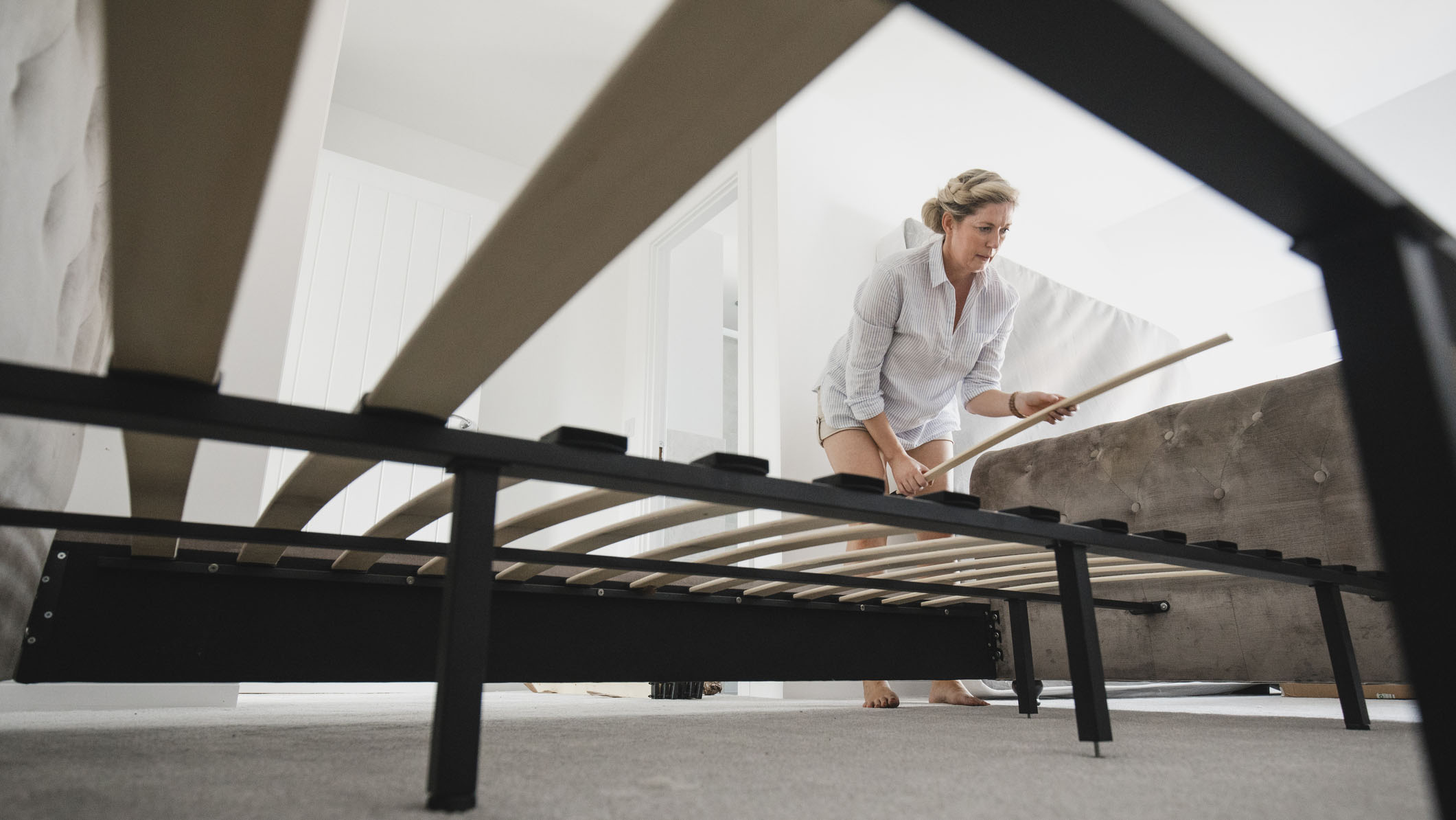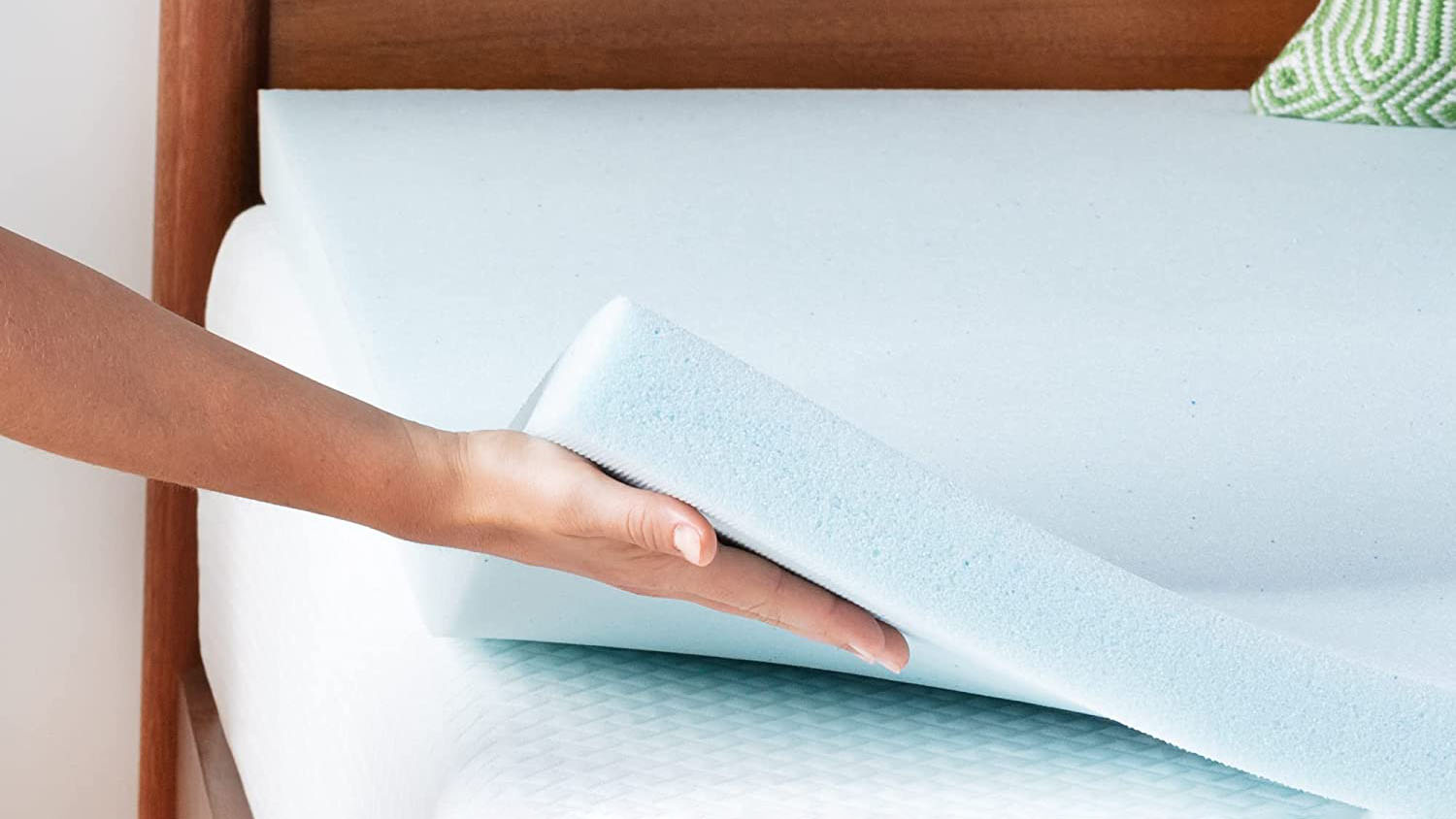How to stop a squeaking bed — 7 quick tips
Is your squeaky bed keeping you awake? Here's how to fix it fast

There's nothing more annoying than a squeaky bed when you’re changing sleeping positions, trying to get comfy. The good news is that the causes of a noisy bed are often easy to fix. From loose joints to a worn-out mattress, here we walk you through everything you need to know about how to stop a squeaking bed – and why they squeak in the first place.
However, if your mattress or bed frame is old or beyond repair, you may want to upgrade your sleep setup altogether. Our guide to the best mattresses contains our top recommendations for all sleepers and budgets. Now is a good time to buy too as this year's Labor Day mattress sales contain good discounts on lots of top-rated models.
For now, here's what you need to know about the common causes of a squeaky bed, and how to stop your bed from squeaking so that you can sleep soundly.
Today's best mattress sales
- Saatva mattresses: $400 off orders worth $1,000+
- DreamCloud mattress: up to 50% off
- Nectar mattresses: up to 40% off
- Helix mattresses: 20% off + free pillows
- Casper mattress: 20% off all beds
- Emma mattresses: up to 55% off
- Tempur-Pedic: 30% off cooling beds
- Brooklyn Bedding mattresses: 25% off sitewide
- Purple mattress: up to $500 off
How to stop a squeaking bed
1. Rotate your mattress
The first thing you should do is to check that the squeak isn't coming from your mattress. It's also the easiest first step too. Rotate your mattress 180-degrees this will ensure the filling is evenly distributed.
You should rotate your mattress at least every three months, even if it's not squeaking to preserve the life of your mattress and ensure that it doesn't start to dip and sag.
2. Tighten any loose screws and bolts
Usually the answer to solving a squeaky bed is to check that all the nuts are bolts are completely tight. As we sleep on our beds screws and bolts can come loose over time, this isn't anything to do with the quality of your bed it's just how it goes.
Remove your mattress from the frame and set about locating all the screws, nuts and bolts on the bed frame. Using a screwdriver or allen key, check that none of these are loose and tighten them as you go. Don't overtighten them as that cna cause damage, just tighten them enough that they are snug.
Sign up to get the BEST of Tom's Guide direct to your inbox.
Get instant access to breaking news, the hottest reviews, great deals and helpful tips.

3. Lubricate metal parts
If you have a metal bed frame then sometimes the parts can rub together and cause friction which of course, results in a squeaky noise. Using WD-40 or any other type of lubricant, apply to the joints and moving parts.
Always wipe off any excess with a cloth so dust and dirt doesn't stick to it. If you have a wooden bed frame you can use beeswax as an alternative.
4. Check your bed frame is even
An uneven bed frame can cause squeaking so always check that your bed frame is evenly placed on the floor. If you need to balance the bed you can add pieces of wood or cardboard under the legs for stability.
If your bed is on casters then you can either grease the wheels with WD-40 or use felt pads to stop them moving around.
5. Cushion the slats
Sometimes when slats rub against the frame (or each other is they're close) it can cause the bed to squeak. To stop any sound coming from the slats use old socks or towels to act as a buffer between them and create a noise-cancelling cushion.
You could also try using a thin piece of plywood under your mattress. This will add firmness to the base and minimize the squeak.
6. Repair the box spring
If you have a box spring bed base then remove the mattress and inspect the are for any loose or broken springs and replace them. If the noise is coming from the wood use beeswax or even a bar of soap on the area where the wood connects.
You may even want to consider placing felt pads or rubber washers between any squeaky joints you discover.

7. Try a mattress topper
Try using a mattress topper to help to absorb some of the noise made by squeaky springs or slats. The best mattress toppers add an extra layer to your bed creating a buffer zone. This should help to absorb some of the pressure caused by your body weight before it reaches your bed frame.
When to replace a squeaky bed
If you've tried all possible solutions from tightening screws to adding padding and stabilizing the frame but the squeaking still continues, it may be time to replace your bed. A squeaky bed is going to consistently disrupt your sleep. And beds are not designed to last forever.
If your bed is worn out, old or structurally damaged then it could be beyond repair anyway and replacing it would be a more sensible option that will result in better sleep and support. The best bed frames and bases are essential to not only a comfortable sleep for you but also increasing the durability of your mattress.
Of course it could be your mattress causing all that noise. Mattresses last around 7-10 years before they start to lose their original comfort and supportive qualities. Some signs you need to replace your mattress include lumpiness or sagging, feeling the springs poking through, and yellow stains appearing on the surface.

Rachael is a freelance journalist based in South Wales who writes about lifestyle, travel, home and technology. She also reviews a variety of products for various publications including Tom’s Guide, CreativeBloq, IdealHome and Woman&Home. When she’s not writing and reviewing products she can be found walking her Sealyham and West Highland terrier dogs or catching up on some cringe-worthy reality tv.
